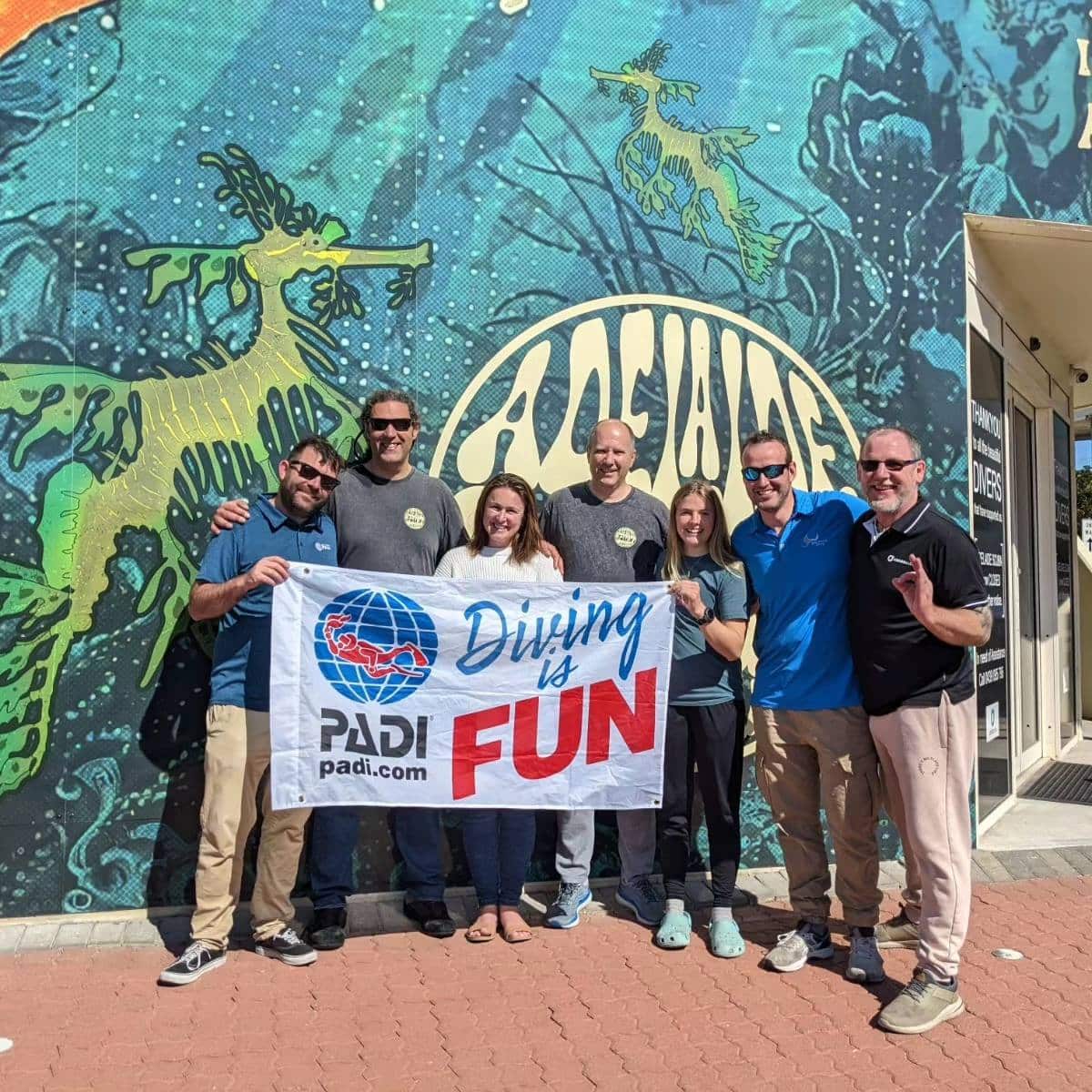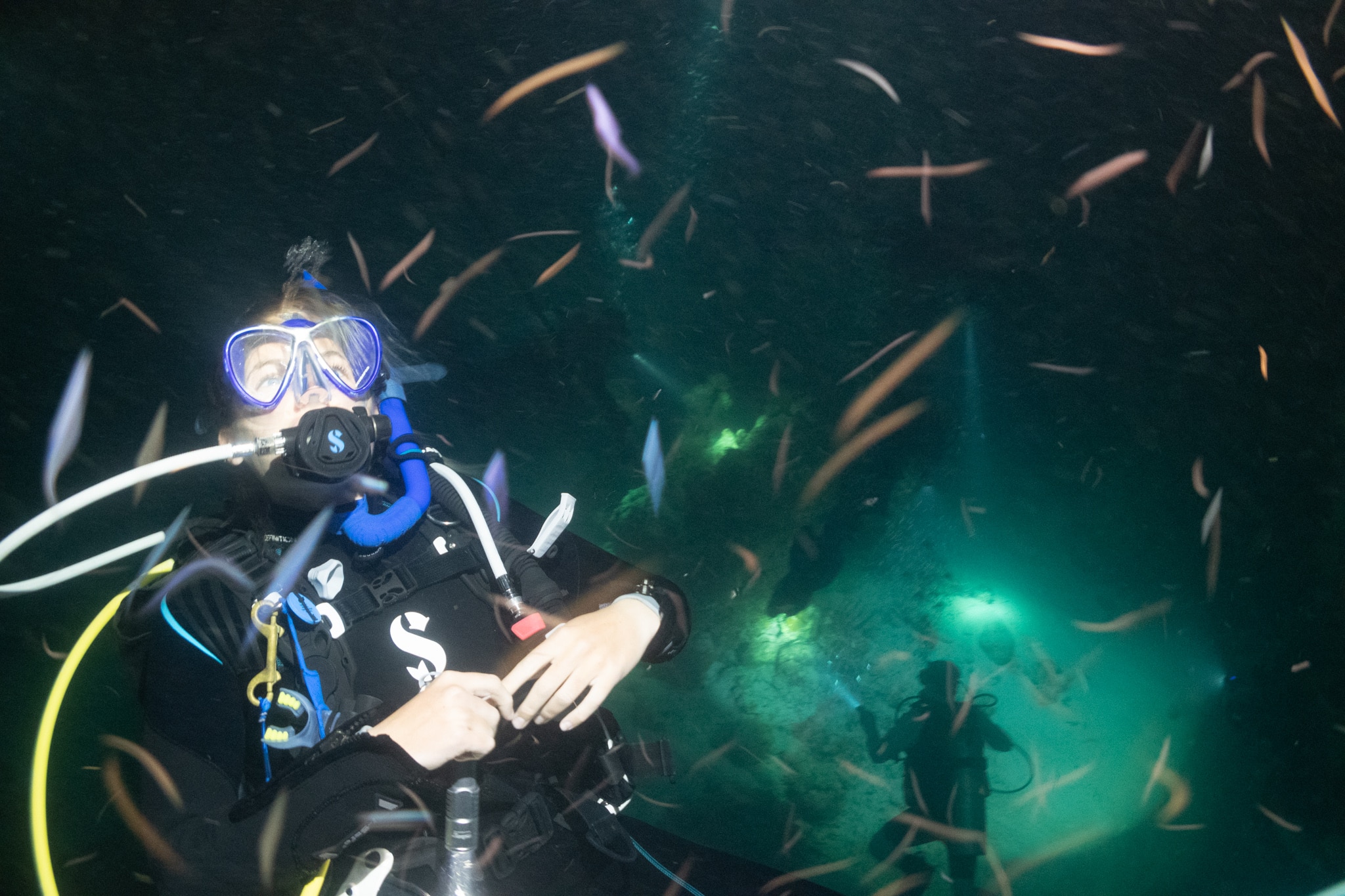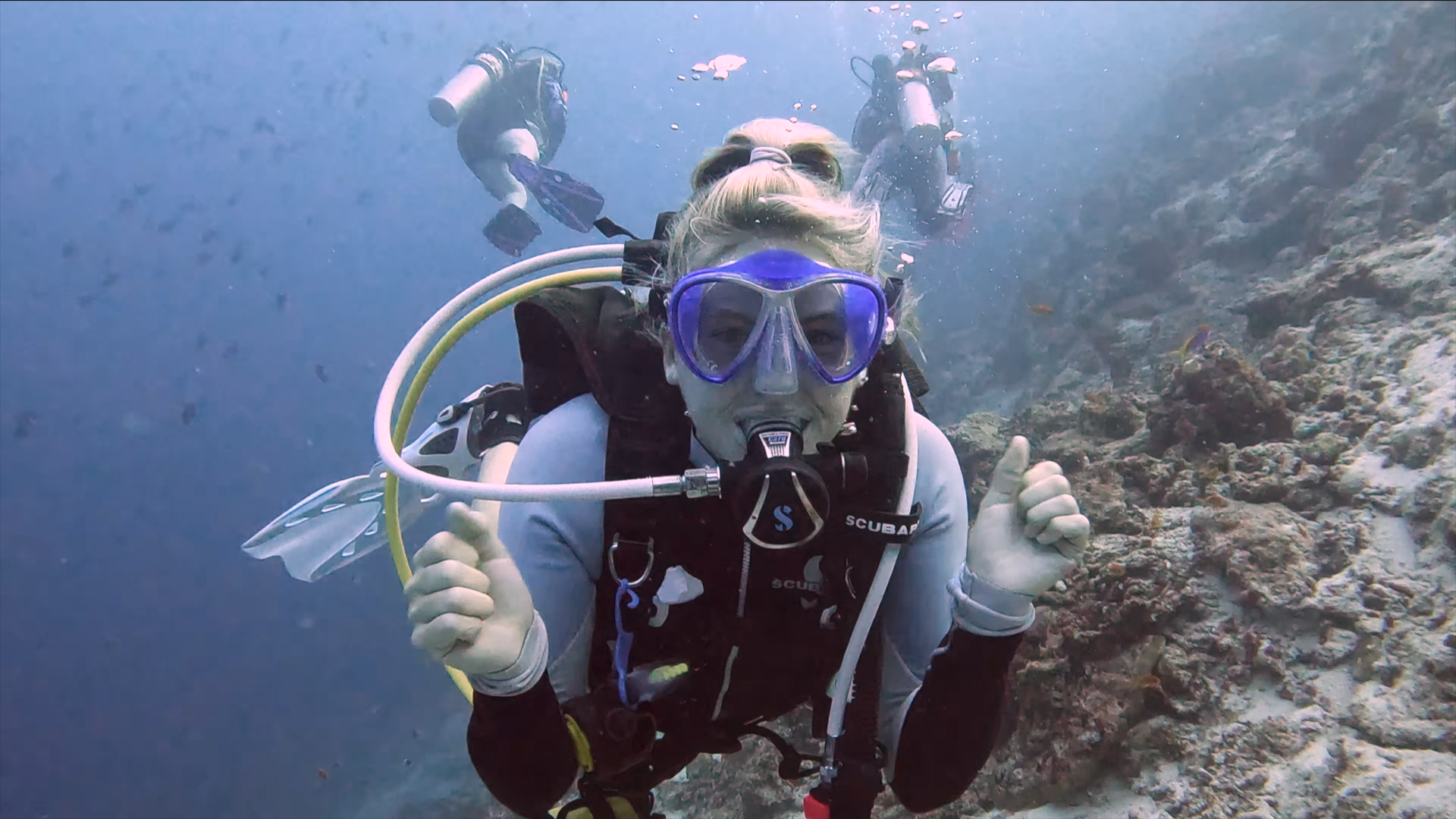What It Takes To Become A Dive Instructor!
The life of a dive instructor looks incredible from the outside; getting to be in the water all day, on boats, having meaningful connections with marine life and getting away from the confides of an office job. But what does it take to get to this level of diving, where you’re so confident in your own skills that you are ready to help others develop their skills?
First you have to be comfortable in the water. Being confident and comfortable in the water is a slightly different journey for everyone. For some people it comes rather naturally, they learn to dive, go on a couple fun dives and work on buoyancy and you would think they had been diving for years! For others, the process requires a bit of patience and determination. Taking courses is a great way to get more and more comfortable on dives, whether these be the course courses such as advanced and rescue, or courses you are interested in such as photo or wreck. The benefit of taking these courses is being under the direct supervision of a PADI professional, who, believe it or not, know what they’re doing as are there to help you! One course I recommend to every single entry level diver is the Peak Performance Buoyancy course, which is designed to make you proficient in the water from a buoyancy perspective, which will help with trim, comfort, air consumption and overall diving abilities. Becoming a confident diver also requires lots of diving in different conditions. Being comfortable in flat water is one thing but you want to make sure you have a bit of experience in current, diving from boats, diving in swell and chop and low visibility. Because I can promise you that as a dive instructor, not only will you be diving in these conditions but you’ll be responsible for the safety of your students in these conditions too!
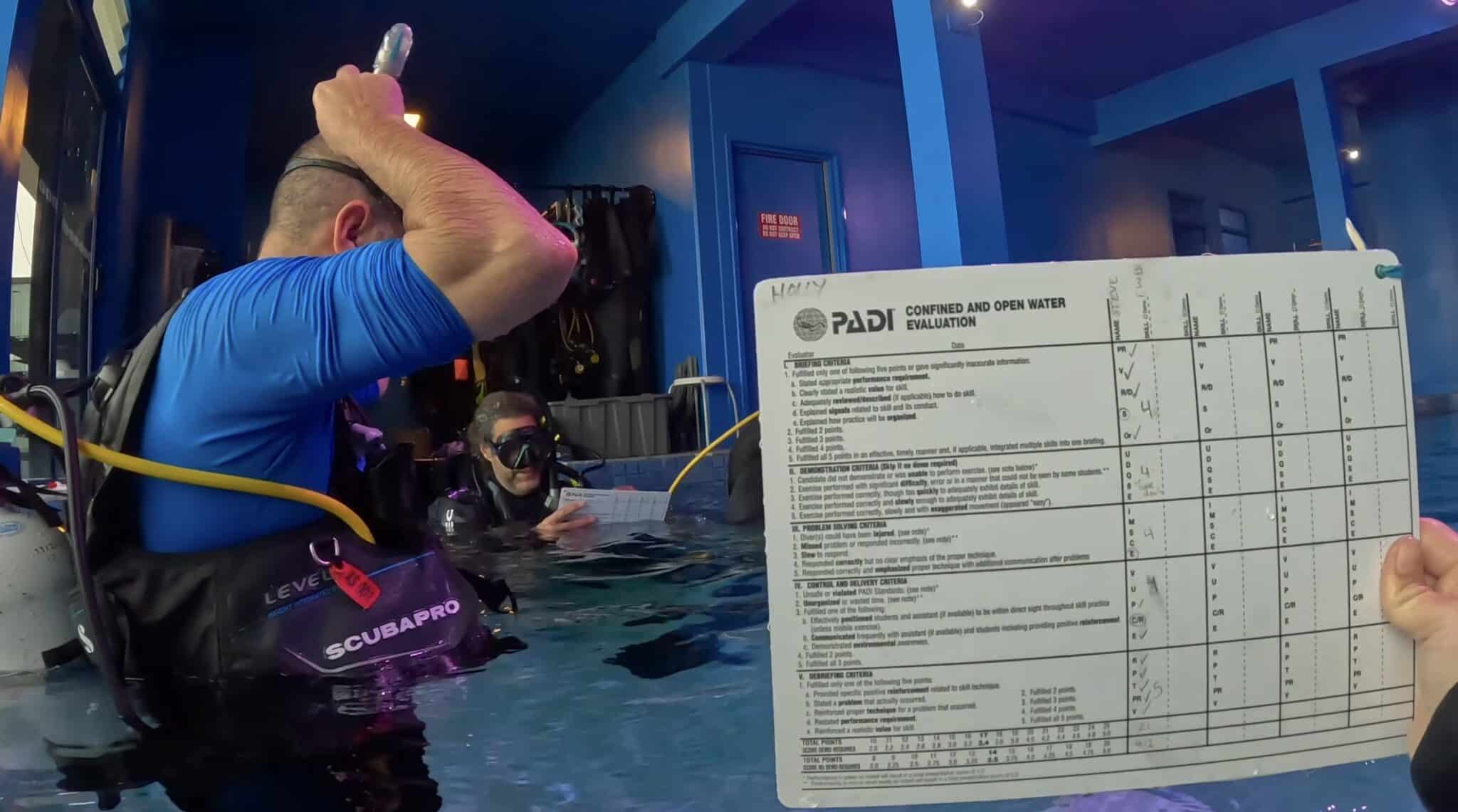
At this point, you’ve probably read the above spiel and agree that you are ready, you’re experienced and would love to work in the industry. Great! The next step is making sure you meet all of the credentials to start working on your instructor course. The first thing you will need is a dive master certification, and therefore will have already done your open water, advanced, rescue and 60 dives. Between divemaster and instructor it is very important that you continue diving to make sure you have a very minimum of 100 dives to start your instructor course. During this time, keep any first aid training current and work on the boats as a divemaster if possible. Boat handling comes with time and practice but is a very important part of instructing.
Sit in on as many courses as you can, sessions in the pool, in the ocean and even dry information sessions are an important part of instructing. Try and see how different instructors teach, as some ways you will love and want to replicate, eventually you’ll get a feel of your personal preferences with teaching, understand positioning in the water and how to best communicate with students of various levels. Skills like this will make the 10-day instructor development course vastly easier and more enjoyable. This will also ensure your dive theory knowledge is being continually tested and referred to so you don’t forget everything you’ve learned previously!
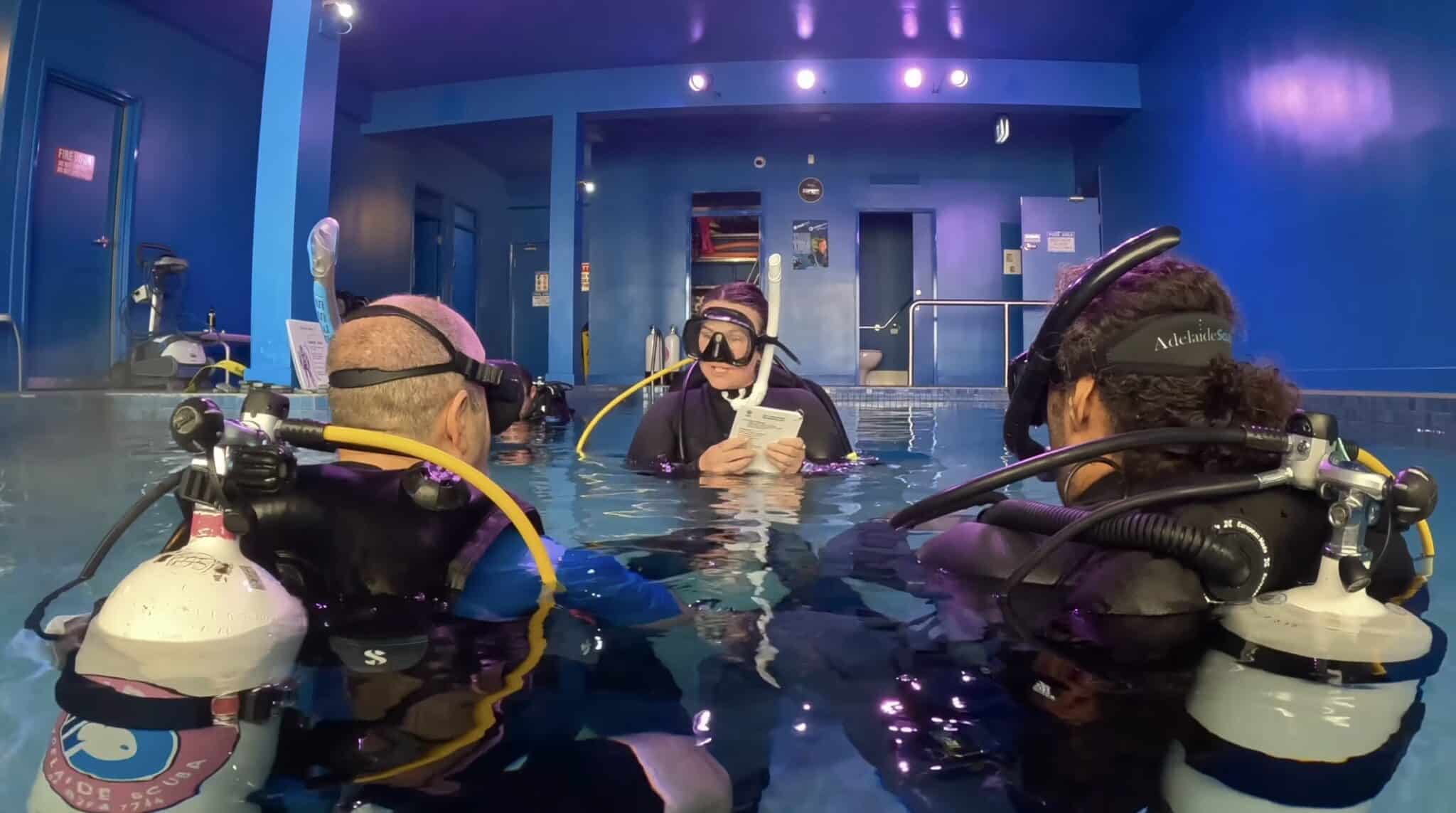
Once you feel your ready to take the next giant stride and do your instructor course, get in touch with a dive center and course director! You want to know what you’re in for, how the course director teaches and if this aligns with how you hope to teach in the future and start any pre learning you have to do prior to the course. The instructor development course (IDC) includes e-learning, so this is important to complete beforehand. Most IDC’s area 10-12 day intensive followed by a 2-day instructor exam (IE). There will be classroom days, pool sessions and open water sessions. Days will consist of a mix of new learning, understanding how to teach using all of the information available to you as a future instructor and practice teaching. From the outside, it seems easy, but you can find your self getting overwhelmed very quickly if you’re not prepared and staying on top of your work. It helps to have support at home if possible. A successful IDC candidate is patient, understanding, determined and passionate, the same attributes that make for a great dive professional.
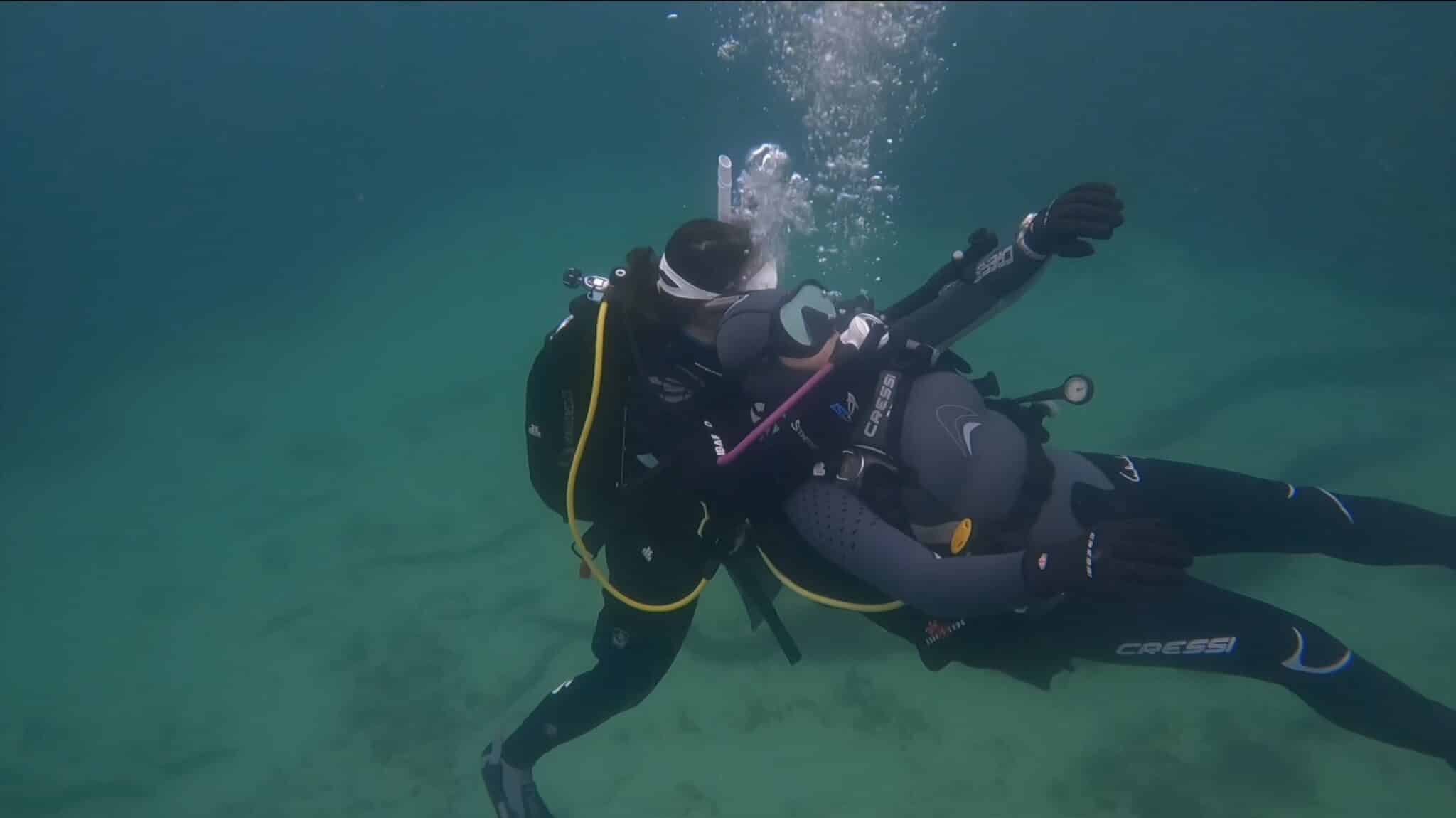
Getting through the IDC is a massive achievement in its self; it means you are fully ready to take on the 2-day instructor exam! The instructor exam is designed to help you pass; you’ve all ready put in the hard work after all. It has a written exam section, pool session and open water session. Passing the IE certifies you as an open water scuba instructor and allows you to teach a huge number of courses! Have confidence in your training but ask questions where you need. Team teach your first couple courses to up your confidence and once you feel ready, get out there and teach! Live the dream! The job can have crazy long hours and be quite draining but it is all worth it when you get to see the look on a divers face after they have seen the most incredible marine life ever (even if this may just be a parrot fish to you!).
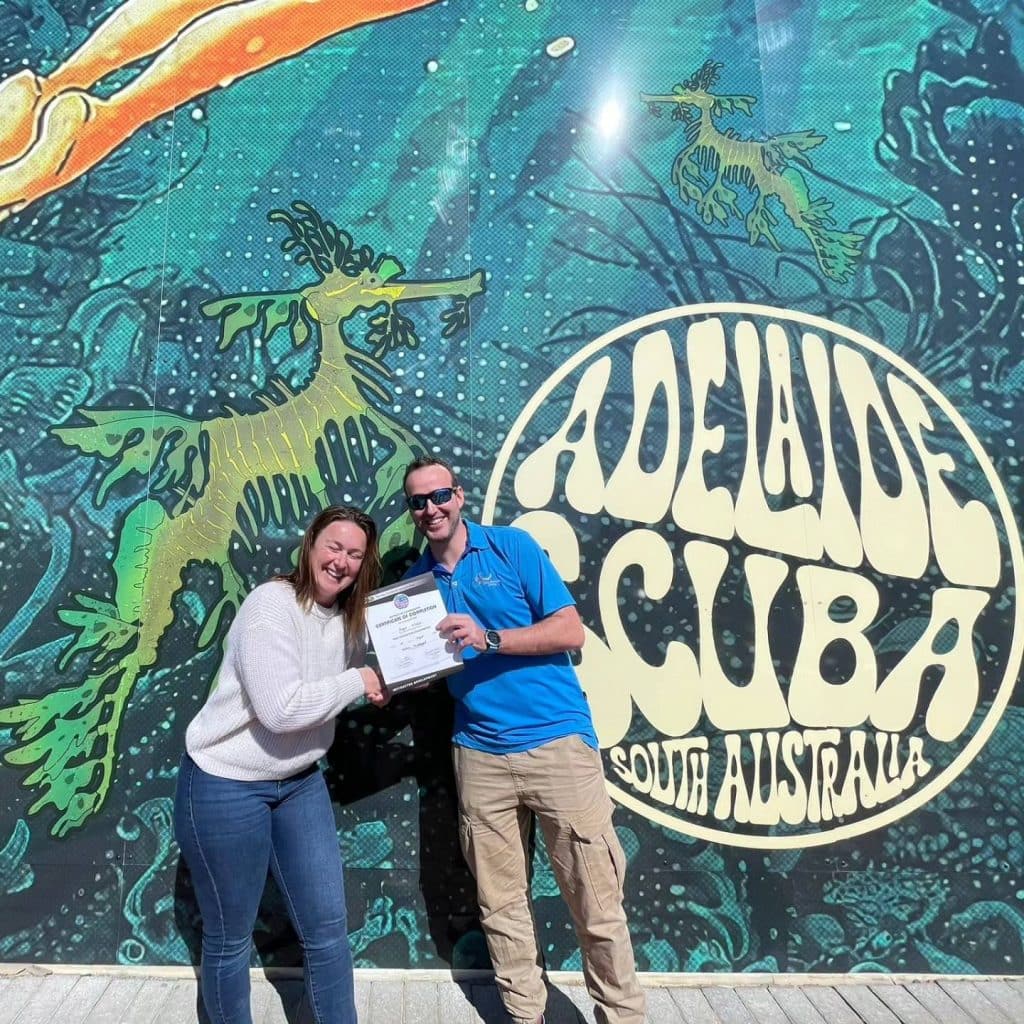
As a dive instructor, you’re still at the bottom of the food chain, there is plenty to learn, so keep learning, take courses, ask questions and be open to constructive criticism. You really do have to enjoy this job to last in the dive industry so it’s very important that you still see diving as a fun thing to do. To do this, dive on your days off, do fun diving trips and talk to others about their dive experiences. Get out there and enjoy it, be patient and take your time teaching!
Our next PADI instructor Development Course at Sunreef Mooloolaba in Queensland, Australia 🇦🇺.
